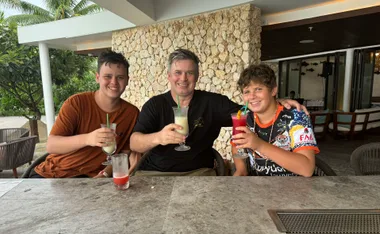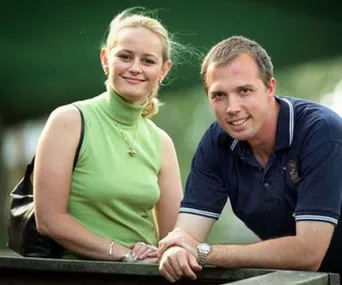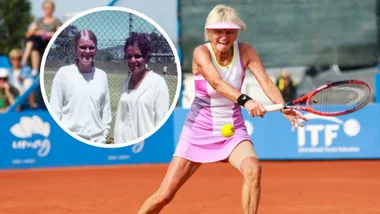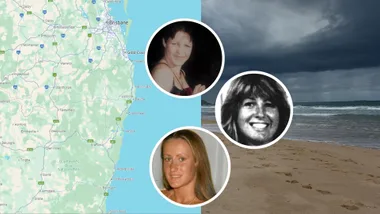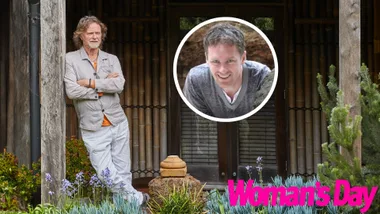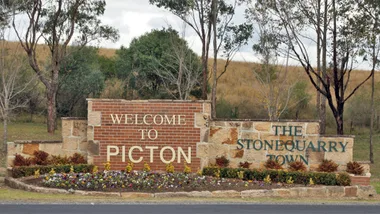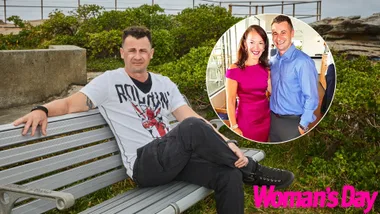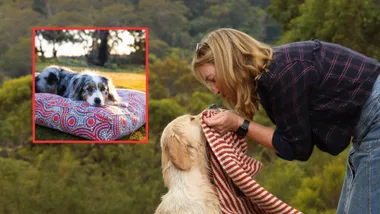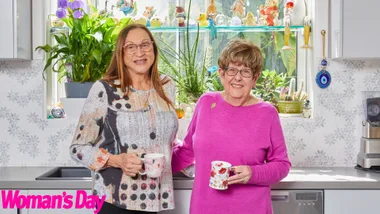There is a tale of sibling rivalry that whispers in the halls of a tiny safe-house in Kenya that houses 26 girls.
The tale is of a favoured baby girl, Anna*, the youngest of three born to an alcoholic mother who wishes to provide everything she can for her beautiful, youngest daughter. Like all mothers she wants clothes, sweets and food to give her darling but this mother has no money to buy gifts.
Sex is a commodity in Kenya, so this mother prostituted her middle child, Mia*, from the age of four, in order to get the funds required.
This mother hated Mia crying out whilst she was attending “clients” in their tiny house, so she held a knife to her throat. When Mia uttered a sound, like a frightened animal, it would slice her skin, and her blood would run with her tears as she was defiled by multiple men a day.

Anna was in the room to witness everything. She saw what was happening to her sister, and she knew that the money was to buy her presents but she could not protest because even as a toddler she understood that if she drew attention to herself the next victim might have been her.
When her mother was drunk, men stole Anna’s virginity anyway. Blessed baby girl was not safe in the home that Mama built. Two-year-old Anna did not fight, because if the men were hurting her, her sister was safe.
This cycle continued for three years by which time the physical and emotional scars were deep.
The two girls love each other for they are all each other has, but they hate each other simultaneously for they bear shame, blame and guilt for the atrocities their mother shrouded their lives with.
In Kenya sexual crimes against children are rife. Whether poverty causes adults to sell their children’s bodies, or ignorance leads men to believe that sex with virgins will cure their HIV the result is the same – thousands of physically and emotionally ruined very young girls.
When most children are learning to ride a scooter, or hold a pencil, these babies are learning that their bodies are nothing but a product to be used, stolen and given away and it is a cycle that a remarkable team of people are hoping to combat by rehabilitating abused girls with love and Play Therapy at their safe house, Rafiki Mwema.
After a visit to Kenya in 2006, British trauma and attachment specialist Anne-Marie Tipper was compelled to do something to help the abused children and babies that lived on the streets.
“Rafiki Mwema came from the number of girls I met in juvenile prisons and rough orphanages where they were sent for ‘care and protection’. Nothing could have been further from the truth,” she recalls.
“Imagine these girls, being raped and abused, going to a remand centre – for many, many months – facing the courts and then being sent home. Imagine having no one to see your pain and be alongside. With the work we do with our girls and our outreach programme we can change the lives of girls in the future.”
Anne-Marie set up Play Kenya which is the charity umbrella for Rafiki Mwema for abused girls, Rafiki Familia for abused boys and a program at Nakuru Women’s Prison where they teach women to care for their babies.
“All our staff are trained in the concepts of Play Therapy. We have developed our own bespoke system, our “Attachment Play Programme” which develops emotional safety for the child, through the relationship with their key worker,” she tells.
“Play is always the language of the child and through this media they are able to explore their lives and master areas of it. There is no expectation that the kids will talk about their abuse – but they do.
“Our staff are taught a therapeutic way of parenting known as PACE – and you watch the repair and healing begin – It’s like the missing magic in a child’s life.”
With no government help Rafiki Mwema does not survive on love and play alone and two years ago they almost ran out of funding. Enter Australian graphic designer, and hero in plain clothes, Sarah Rosborg.

Sarah first met Anne-Marie in Kenya when she was volunteering at another abused children’s home.
“I would sit and watch Anne-Marie doing this amazing play therapy with the most damaged children in the orphanage, and I just watched the therapy and it was incredible. I’d never seen or heard of play therapy before,” Sarah recalls.
Sarah returned home and continued her life and had a child, when she heard that Rafiki Mwema was out of funds and the girls were going to have to go back on the street.
Using her skills and her contacts Sarah set up a sponsorship program, and created products to sell in order to raise money to keep the safe-house alive, and allow the girls journey to wellness continue, but it’s expensive to keep it afloat.
“We pay to put the girls through the court system to prosecute the rapists, and sometimes they require multiple reconstructive surgeries. They ruin beds every other night because they go to the toilet out of fear and because of physical injuries,” tells Sarah.
“People don’t want to believe that this happens, but it’s happening every day.”
Currently, if the girls respond well to therapy they try to place them back with family, if not immediate family then extended – if it is deemed safe. Sometimes it is hard to know it is safe but with no permanent boarding solution the Rafiki team often need to use their best judgement.
“If we think their family is safe we start a three month step down program. We educate the family and put them through therapy. We educate the surrounding community so they don’t blame the girls and in turn abuse them further. We check in on them regularly and we speak privately with them and if we need to take them out again, we do.
“We had a girl go home to what we thought was a good family, she was five and had been with us for two years. She went home and her father raped her. He had never shown signs of abuse before but because she had already been raped she’s seen as damaged goods anyway.”
This mentality is common in the villages where the defiled children are seen as unclean.
Anne-Marie has a dream that one day she will have the facilities to look after the kids that cannot go home until they are adults.
“I dream of never having to send a girl home to an unsafe environment,” she says.
“My number one dream is to build a therapeutic school in Nakuru. Children who have experienced trauma process things in a different way to other kids and I want a school where our children can stay until they are 18 – with the support of their families – and emotionally manage learning.
“At our school we would have boys and girls develop respect for each other; heal their wounds and take the all-important education to be the best they could ever be. For some that might mean a university – for others a job in a kitchen – it’s about repairing their self-esteem and their souls.”
The dream school doesn’t seem like an impossible task, all it would take is the help to make it happen.
Click here for more information about helping Rafikia Mwema help rebuild lives
.jpg?fit=900%2C675)
